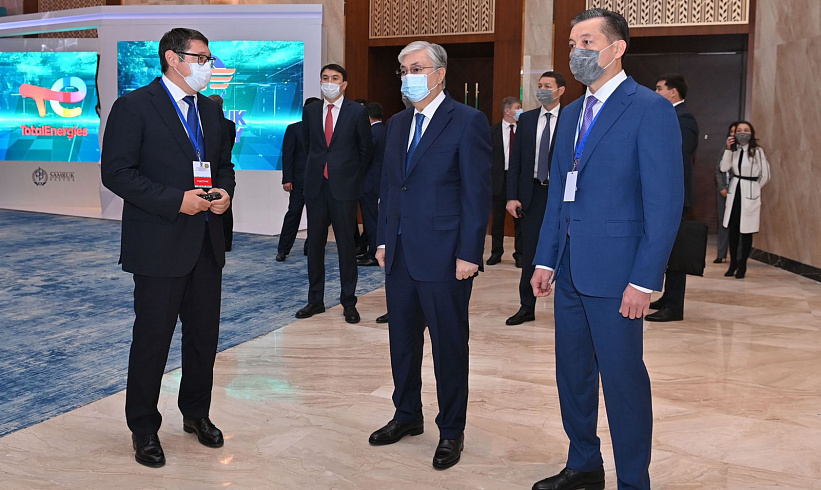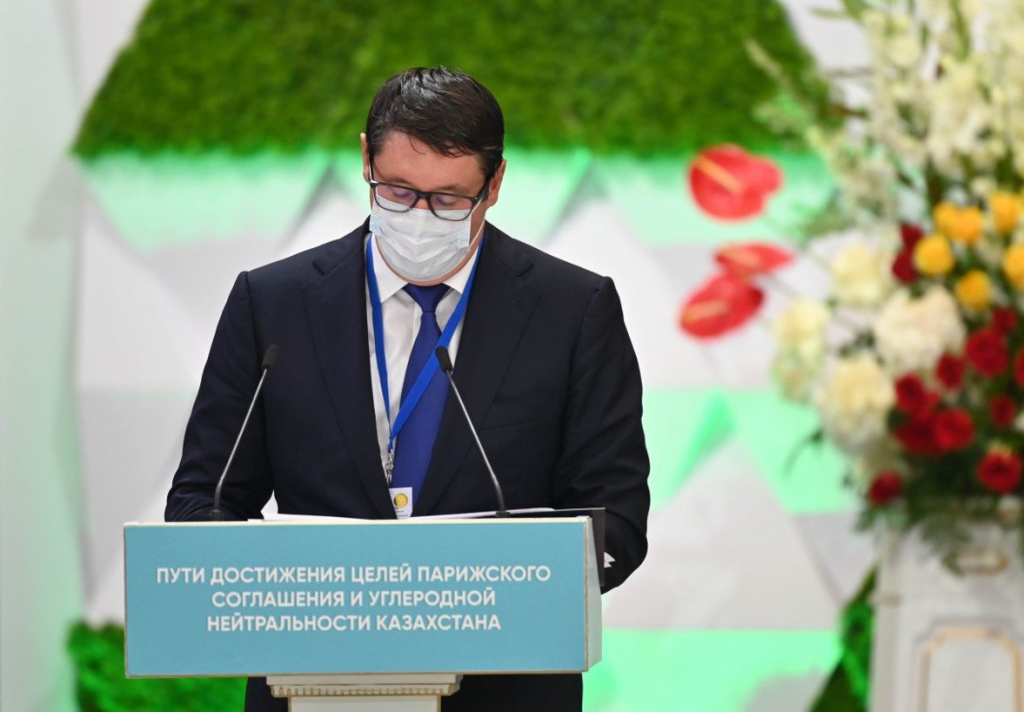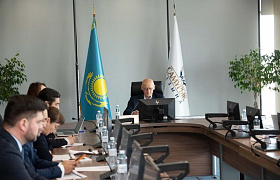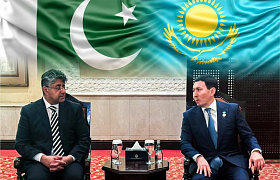Carbon Neutrality for Samruk-Kazyna: Achievable Goal

1497
14 October 2021
President Kassym-Jomart Tokayev announced that Kazakhstan will reach carbon neutrality by 2060 at the International Conference on "Ways to achieve the Paris Agreement and Kazakhstan's carbon neutrality."
The event was attended by the United Nations high-level representatives, international experts, business circles and civil society representatives, financial institutions and development partners, and media.
The Head of State stressed that "it is already clear that achieving an ambitious goal of the Doctrine will require systemic efforts like modernization of the fuel and energy complex, review of industrial and agro-industrial policies, new approaches to housing and utilities."

By 2060, the share of renewable and alternative energy sources will reach more than 80% of the country's total energy supply. The carbon neutrality scenario involves a solid collaborative effort by the state, business, and society at large to achieve the stated goals. Its successful implementation will not only achieve the 2030 goal, that is, a 15% reduction in emissions from 1990 levels, but a zero greenhouse gas balance by 2060. As a result, more than 9 billion tons of CO2 will be prevented from entering the atmosphere.
President Kassym-Jomart Tokayev noted that implementing the goals would require significant funds and investment in the modernization of the electricity and heat generation sector, public support, revision of the National Emissions Trading System, harmonization with relevant international systems.
Samruk-Kazyna CEO Almassadam Satkaliyev noted that it is critical to prevent the de-industrialization of the economy in developing the forecast balance. Energy consumption in Kazakhstan could increase by 2-3 times by 2060, and renewable sources with active development of smart-grid technologies and energy storage systems should become the basis for meeting demand.
Given the specific nature of RES and limited gas resources, nuclear power plants are becoming an alternative to coal-fired generation. Given the advances in technology, safety, and social costs, nuclear energy has a crucial role in solving energy problems.
Almassadam Satkaliyev said that within the framework of measures to stimulate the energy transition, Samruk-Kazyna plans the realization of some projects, including:• Conversion of several cities' thermal power plants from coal to gas
• RE development • Innovative Grid Technologies with Energy Storage Systems.
• Development of carbon capture and storage
• Use of hydrogen and geothermal energy
• Commissioning a nuclear power plant
• Construction of the experimental Clean Coal Technologies station
United Nations Assistant Secretary-General Mirjana Spoljaric Egger, Minister of Ecology, Geology and Natural Resources Serikkali Brekeshev, Pulitzer Prize laureate Daniel Yergin, Managing Director, Green Economy, and Climate Action at EBRD Harry Boyd-Carpenter, Director of the Environment Directorate of the OECD Rodolfo Lacy, also addressed the Conference. U.S. Special Envoy for Climate, John Kerry, delivered a video message.
Рекомендуем

{{ $t('messages.news1') }}
434 Projects, 11.5 Million Kazakhstanis: Results of Samruk-Kazyna’s So...

{{ $t('messages.news1') }}
Nurlan Zhakupov met with Kai-Fu Lee, CEO of Sinovation Ventures and 01...

{{ $t('messages.news1') }}
The Second Winter Spartakiad of the Samruk-Kazyna Group of Companies T...

{{ $t('messages.news1') }}
Nurlan Zhakupov, Chairman of the Management Board of the Fund met with...


